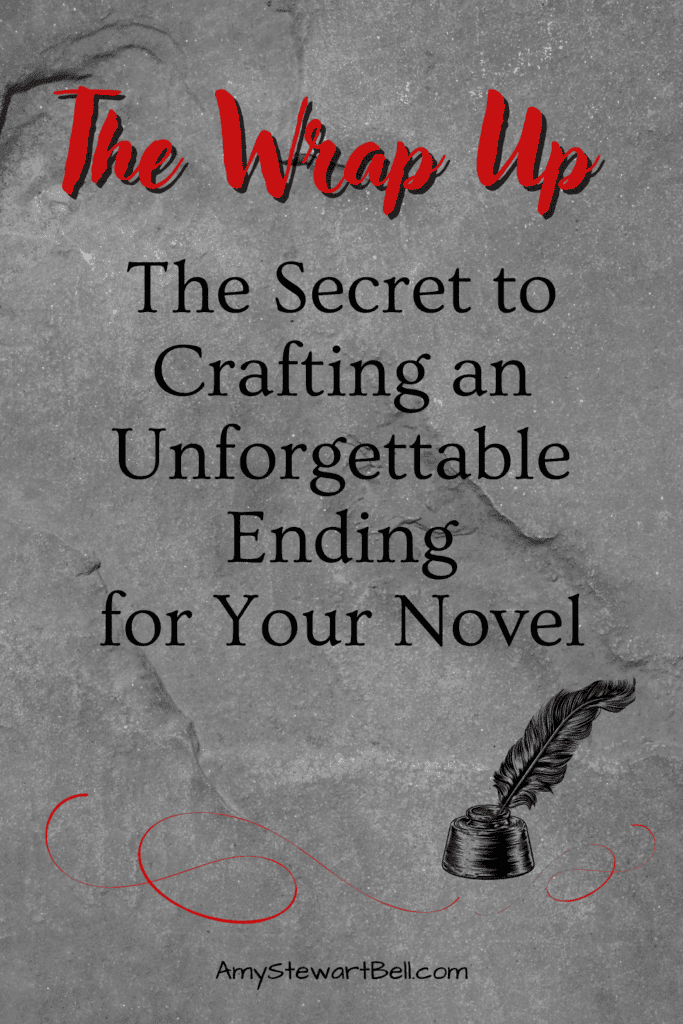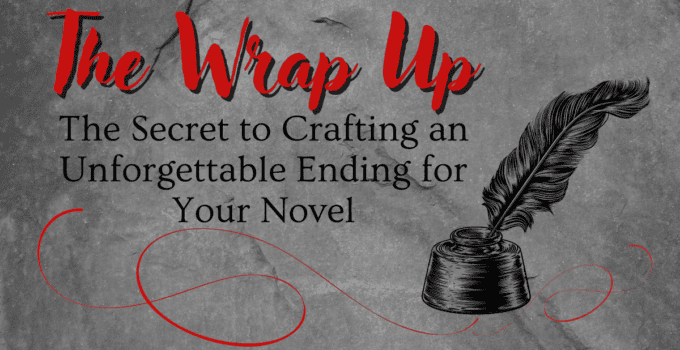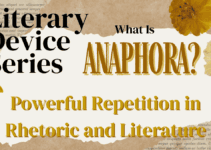The Wrap Up: Why the Ending is the Most Important Part of Your Story
The wrap up or the ending of your story is the most important part – it’s what will leave a lasting impression on your reader. An interesting, impactful conclusion can make or break your entire narrative.
Crafting a memorable ending requires careful thought and execution. It’s not enough to simply provide a resolution to your plot; the final pages must pack an emotional punch, tying together themes and leaving the reader satisfied yet contemplative.
The wrap up is your last chance to solidify your story’s message and cement its place in the reader’s mind. A weak or predictable conclusion can undermine even the strongest opening and middle sections. On the other hand, a truly masterful ending can elevate an otherwise average story into an unforgettable work.
Investing time and effort into perfecting your novel’s conclusion is essential. It’s what will determine whether readers come away feeling profoundly moved – or simply indifferent. Make sure your wrap up leaves them thinking, feeling, and desperate to read more of your work.
7 Powerful Techniques to Craft an Unforgettable Novel Ending – The Wrap Up
Crafting an unforgettable novel ending is an art form that can make or break your story. As a writer, you have the power to leave your readers awestruck, moved, or deeply satisfied. By mastering these 7 powerful techniques, you can ensure your novel’s conclusion packs a lasting punch.
1. Wrap up by tying up loose ends: Skillfully resolve any outstanding plot points, character arcs, or unanswered questions to provide a sense of closure for your audience.
2. Wrap up by evoking strong emotions: Elicit a visceral response, whether it’s joy, sorrow, or inspiration, that resonates with readers long after they’ve turned the final page.
3. Wrap up by Introducing an unexpected twist: Surprise your readers with a clever, yet believable, plot twist that sheds new light on the story and leaves them pondering the implications.
4. Wrap up by creating a lasting impression: Craft a final scene or line that encapsulates the essence of your novel and lingers in the reader’s mind, becoming a memorable part of your literary legacy.
5. Wrap up by emphasizing theme and meaning: Ensure your ending reinforces the central themes and messages you’ve woven throughout your story, leaving readers with a deeper understanding and appreciation.
6. Wrap up by balancing resolution and open-endedness: Strike the perfect balance between tying up storylines and leaving room for readers to ponder the characters’ futures, sparking their imagination.
7. Wrap up by showcasing character growth: Demonstrate how your protagonist has evolved and transformed over the course of the novel, culminating in a profound, satisfying conclusion.
Implement these techniques, and you’ll be well on your way to crafting an unforgettable novel ending that will captivate your readers and cement your place as a masterful storyteller.
You may also find these similar posts helpful: Craft a Compelling Hook, Captivate Readers from Start to Finish, Write the Perfect Plot Twist, The Power of Deep POV, and Mastering Worldbuilding
Avoiding Common Mistakes That Ruin an Otherwise Great Novel
When it comes to writing a novel, the ending is just as crucial as the beginning. An otherwise great story can be completely ruined by a weak, unsatisfying, or clichéd conclusion. Readers invest time and emotion into a book, so they deserve an impactful, resonant finale that leaves a lasting impression.
Avoid common mistakes that can derail an otherwise compelling novel. Steer clear of tying up every loose end in a neat bow, delivering a predictable “happily ever after,” or abruptly cutting off the story without a proper resolution. Resist the temptation to introduce new, unresolved plot points at the last minute, which can leave readers feeling frustrated and cheated.
Instead, craft an ending that feels authentic and true to the characters and themes you’ve established. Aim to evoke a strong emotional response, whether it’s triumph, sorrow, contemplation, or something in between. The final pages should feel both conclusive and thought-provoking, providing a sense of closure while also leaving readers with lingering questions to ponder.
With careful planning and execution, you can ensure your novel sticks the landing and leaves a lasting impact on your audience. Put in the work to deliver an ending that does justice to the journey you’ve taken them on.
Real-World Examples of Masterful Novel Endings (And What Makes Them Work)
The final pages of a novel can make or break the entire reading experience. A masterful ending has the power to elevate an otherwise ordinary story into an unforgettable literary achievement. Let’s examine some real-world examples of impactful novel conclusions and unpack what makes them so effective.
One shining example is the closing chapter of Cormac McCarthy’s “The Road.” As the father and son make their final, bittersweet journey, McCarthy’s sparse yet poetic prose conveys a profound sense of both loss and hope. The ambiguous, open-ended conclusion challenges readers to ponder the story’s deeper themes long after the last page.
Similarly, the finale of Khaled Hosseini’s “The Kite Runner” lands with immense emotional resonance. In these final moments, the protagonist finds redemption and reconciliation, offering a cathartic resolution to his tortured journey. Hosseini’s ability to craft an ending that is both satisfying and thought-provoking is a masterclass in novel writing.
Lastly, the closing pages of Markus Zusak’s “The Book Thief” demonstrate how an author can skillfully interweave past, present, and future to deliver an impactful conclusion. As the narrator reveals the fates of the characters, readers are left with a profound meditation on the power of storytelling to transcend even the darkest of circumstances.
These examples illustrate that a truly masterful novel ending is one that not only provides narrative closure, but also leaves a lasting impression on the reader’s heart and mind. By carefully considering elements like tone, theme, and narrative structure, writers can craft final chapters that elevate their stories to iconic status.
Side note: Something to keep in mind is your genre. There are certain tropes, certain expectations which are required within certain genres. Don’t skip those!
How to Leave Your Readers Satisfied and Eager for More
Crafting a truly satisfying ending is one of the most challenging yet critical elements of successful copywriting. Your final words have the power to leave a lasting impression and inspire readers to eagerly anticipate your next work.
By employing strategic techniques, you can ensure your readers feel a profound sense of completion while simultaneously sparking their curiosity. Implement methods that encourage deep contemplation, evoking emotions that linger long after the final sentence.
Utilize strategies that provide a true sense of closure, while still leaving your audience craving more. This delicate balance will not only leave them satisfied but also eager to share your content with others, driving valuable word-of-mouth promotion.
Mastering the art of the ending is an essential skill for any copywriter who wants to create content that resonates and inspires action. Implement these proven tactics, and watch as your readers become devoted fans, anxiously awaiting your next masterpiece.
The Key to an Unforgettable Novel is in the Ending
A powerful, impactful ending is the key to crafting an unforgettable novel. The conclusion is what readers will remember long after they’ve turned the final page, so it’s crucial to stick the landing.
A well-executed ending has the power to transform an otherwise ordinary story into an exceptional one. It’s your chance to leave a lasting impression on your audience and elevate the entire narrative. Whether it’s a shocking twist, an emotionally resonant resolution, or a thought-provoking final line, the ending is your opportunity to make your mark.
Invest the time and care into carefully planning your novel’s conclusion. It should feel inevitable yet surprising, tying up loose ends while opening up new avenues for contemplation. Deliver an ending that lingers in the reader’s mind, one that compels them to reflect on the journey they’ve just experienced. That is the mark of a truly unforgettable novel.
LET’S CONNECT!
There are many ways to connect with Amy Stewart Bell. We would love to know what you think and any of the topics we offer. We welcome your comments and want to interact with you!
If you haven’t yet, grab your copy ofOnce Captured, the first in Amy’s Captive Series. And now you can grab the second in the series, Uncharted Captivity, as well!
You can also connect in other areas. Join us on Instagram@AmyWritesAll, on X @AmyWritesAll, and on Facebook@AmyWritesAll.
Be sure to join our community newsletter; you will get even more inside info!







